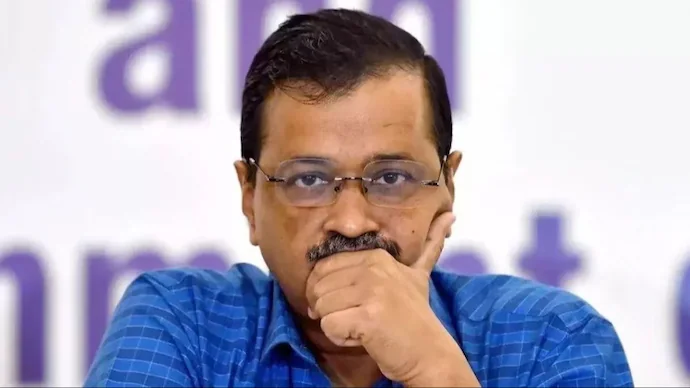
In a bold move, Delhi Chief Minister Arvind Kejriwal declared his intention to march to the Bharatiya Janata Party (BJP) headquarters with all Aam Aadmi Party (AAP) leaders following the arrest of AAP leader Vibhav Patel. The announcement came in the wake of Patel’s arrest in connection with an alleged assault case involving Delhi Commission for Women (DCW) Chairperson Swati Maliwal. Kejriwal’s declaration has intensified the already charged political atmosphere, setting the stage for a potentially dramatic showdown.
The Incident and Arrest
The controversy began when Swati Maliwal filed a complaint alleging that Vibhav Patel, a prominent AAP leader, had assaulted her. According to the complaint, the incident occurred during a heated altercation over internal party matters. Following the complaint, the Delhi Police arrested Patel, citing the need for a thorough investigation into the matter. This arrest has sparked a significant uproar within the AAP, with leaders accusing the BJP-led central government of orchestrating a politically motivated attack against their party.
Kejriwal’s Response
Reacting to Patel’s arrest, Kejriwal delivered a fiery speech, condemning the actions of the Delhi Police and the central government. He accused the BJP of using state machinery to intimidate and harass AAP leaders. “This is not just an attack on Vibhav Patel, but an attack on our entire party and the democratic principles we stand for,” Kejriwal asserted. “The BJP is trying to silence us by misusing their power, but we will not be cowed down.”
Kejriwal further announced, “Tomorrow, I will go to the BJP headquarters with all AAP leaders. Whoever you want to arrest, do it. We are not afraid of your tactics. The people of Delhi are with us, and they can see through your political vendetta.”
Political Reactions
Kejriwal’s announcement has elicited strong reactions from various political quarters. The BJP has dismissed his accusations, calling them baseless and an attempt to deflect attention from the serious allegations against Patel. BJP spokesperson Sambit Patra stated, “The law is taking its course. If someone is accused of a crime, they must face the consequences. This is not about politics; it is about justice for Swati Maliwal.”
On the other hand, opposition parties have largely sided with Kejriwal, criticizing the BJP for what they describe as an overreach of power. Congress leader Rahul Gandhi tweeted, “Democracy is under threat when political rivals are targeted using state machinery. We stand with Arvind Kejriwal in his fight against this authoritarianism.”
Public Sentiment
Public opinion on the matter appears to be divided. Supporters of AAP see Kejriwal’s move as a courageous stand against the BJP’s alleged misuse of power. “Kejriwal is fighting for democracy and justice. This government thinks it can silence anyone who opposes them, but they are wrong,” said Anil Gupta, an AAP supporter.
Conversely, BJP supporters believe the law must take its course, irrespective of the political affiliations of those involved. “If Vibhav Patel is innocent, he will be cleared through the judicial process. But Kejriwal’s theatrics are only meant to create chaos and deflect attention from the issue at hand,” argued Priya Sharma, a BJP supporter.
The Broader Implications
This confrontation between the AAP and BJP is indicative of the broader political tensions in India. The AAP has often positioned itself as an anti-establishment party, challenging the traditional dominance of both the BJP and Congress. Kejriwal’s tenure as Delhi’s Chief Minister has been marked by frequent clashes with the central government, particularly over issues of administrative control and governance.
This latest episode is likely to exacerbate these tensions. Kejriwal’s decision to march to the BJP headquarters is a direct challenge to the central government’s authority and could lead to heightened political conflict. Such actions also underscore the polarized nature of Indian politics, where ideological battles often spill over into legal and administrative domains.
The Road Ahead
As the situation unfolds, all eyes will be on the planned march to the BJP headquarters. The potential for conflict is high, and the response of the Delhi Police and central authorities will be crucial. If the police attempt to block the march or arrest more AAP leaders, it could lead to significant public unrest and further allegations of political bias.
Moreover, the judiciary’s role in this case will be closely watched. How the courts handle the allegations against Vibhav Patel and the subsequent legal battles will have important implications for the perception of judicial independence in India.
Conclusion
Chief Minister Arvind Kejriwal’s vow to march to the BJP headquarters is a bold and risky move that highlights the deepening political divide in India. By challenging the BJP’s alleged misuse of power, Kejriwal is positioning himself and the AAP as defenders of democratic principles against authoritarian tendencies. The outcome of this confrontation will not only impact the immediate political landscape but also set the tone for future interactions between state governments and the central authority in India. As events unfold, the resilience of India’s democratic institutions will be put to the test.